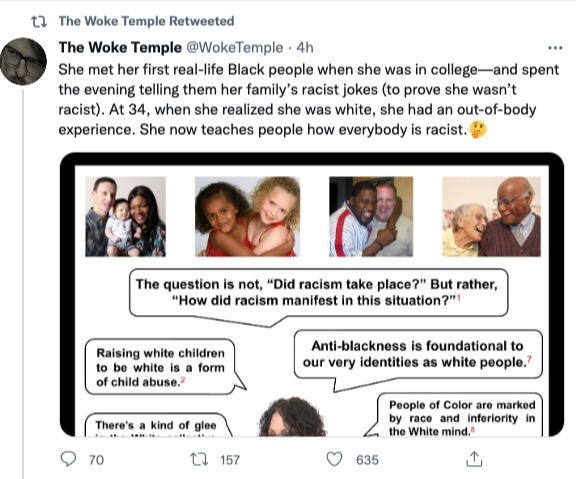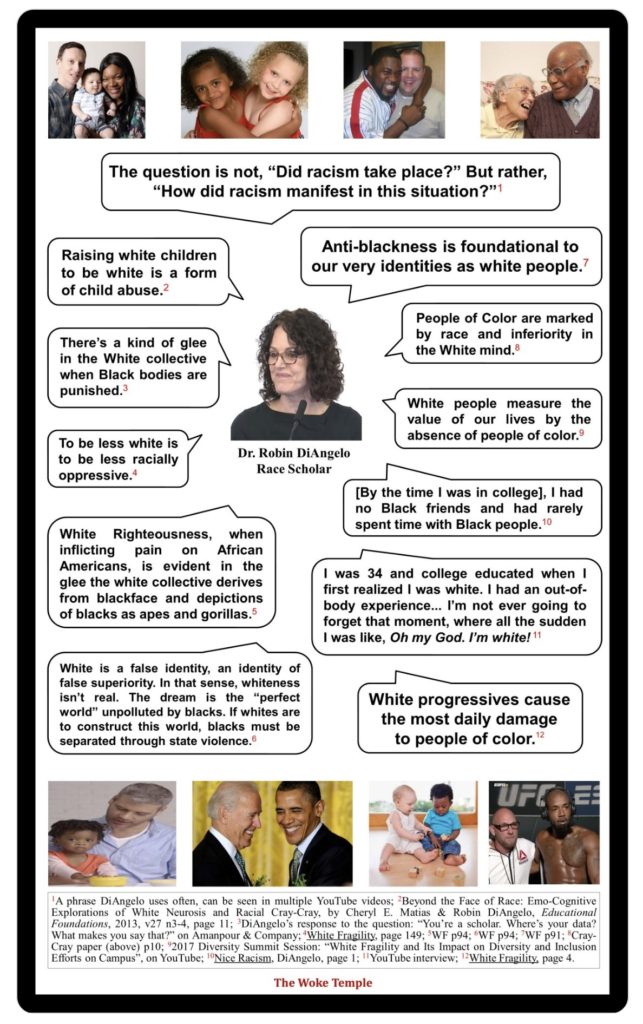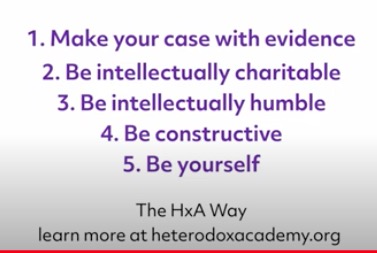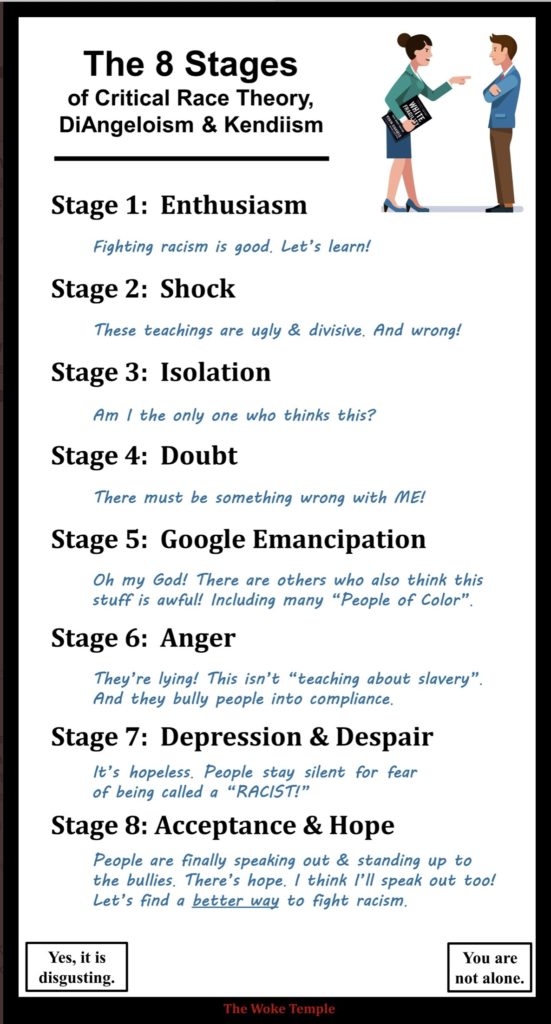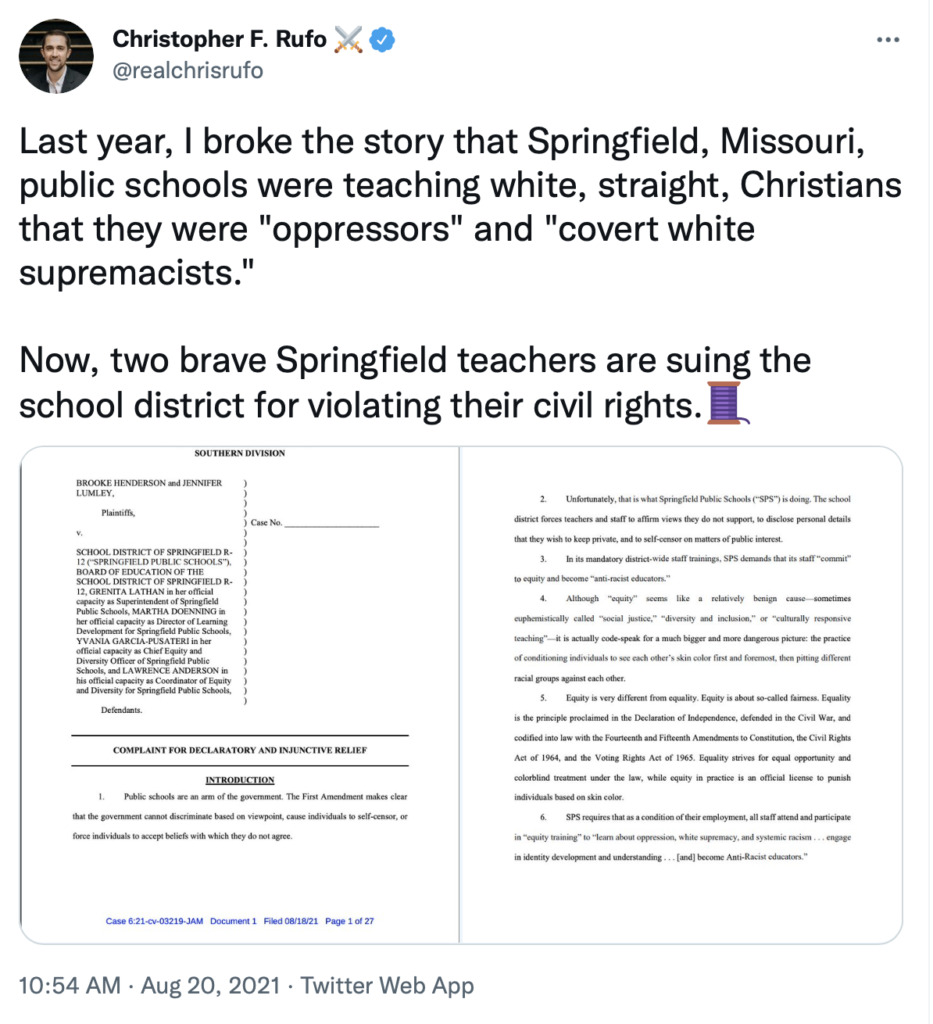Another Look at Robin DiAngelo’s White Fragility
First, some statistics:
White Fragility became a New York Times bestseller for more than a year. In September 2019, Slate noted that "White Fragility has yet to leave the New York Times bestseller list since its debut in June 2018, making it the fastest-selling book in the history of Beacon Press." In June 2020, during the George Floyd protests, it reached no. 1 on the New York Times list. The July 26, 2020 edition of the list marked the book's 97th week in the Paperback Nonfiction category, where it was ranked number 1.Now, some facts about Robin DiAngelo, carefully and accurately reported by The Woke Temple:
Here is DiAngelo's thought process, in all of its glory:
That so many American news media outlets, universities and HR Departments could embrace this divisive, poisonous, pathological, infantile, baseless nonsense for the past couple of years should send a chill through every one of us. How is it possible that so many people supported her patently racist ideas and her repeated infantilization of blacks? The fact that this utter crap was ubiquitously touted by American elites at the same time that they refused to honor Martin Luther King's brilliant time-tested idea to judge people only by their content of character demoralizes me.
It's difficult to determine how to de-program the thousands of people who run our sense-making institutions who continue to tout this garbage.

